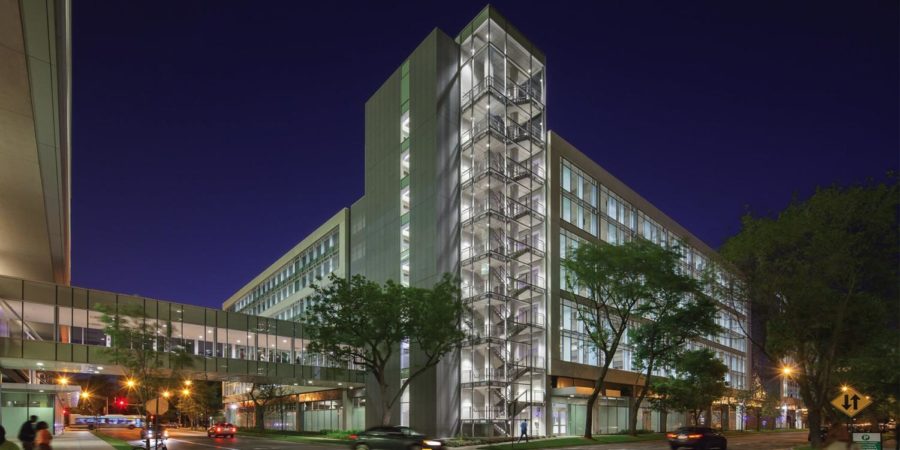UChicago Medicine (UCM) invested nearly 10 percent more in benefits and services to the South Side community during the 2020 fiscal year, according to its recently released 2020 Community Benefit Report. This increase in investment is part of UCM’s effort to address systemic racism and health disparities within the city of Chicago.
The $567.1 million investment in benefits and services marks a 9.2 percent increase over the corresponding value from 2019. Of the $567.1 million, $405.6 million went to Medicaid and Medicare program losses, $66.3 million went to unrecoverable patient debt, and $41.5 million went to charity care. Notably, $4.3 million went towards uncategorized community benefit, a direct response to the pandemic.
The report detailed measures taken to combat health inequity in relation to COVID-19, particularly through supplying personal protective equipment, food, masks, and other financial donations. “Our Black and Brown communities bore the heaviest burden of the COVID-19 pandemic, through illness, loss of life and economic hardship. These disparities demonstrate how racism is a public health crisis,” the report reads. From March through December 2020, UCM conducted more than 250,000 COVID-19 tests, of which 57,278 were conducted for community partners, such as federally qualified health centers, nursing homes, and community hospitals.
Additionally, UCM’s South Side Health Transformation Project also aims to address health inequity. The project is a partnership between UCM, St. Bernard Hospital, and Advocate Trinity Hospital, who together are seeking funding for this plan.
UCM also allocated $22 million to local hiring since 2019, which has led to 76 local hires. Twenty-four percent of UCM’s total hires live on the South Side, and 24 percent of the total workforce live in the UCM service area, which includes 12 South Side zip codes and 13 Southland zip codes across 17 cities. UCM has allocated $20.8 million in construction contracts to certified minority- and women-owned firms and $4.3 million in wages to minority and female construction workers.
The report also included statistics from UCM’s Level 1 Trauma Center, which was created after years of concerted activism led by Hyde Park and Woodlawn community members. The Violence Recovery Program served 1,500 patients and 586 families, and the Southland Resilience Initiative to Strengthen and Empower awarded $100,000 to 14 grassroots organizations for summer violence prevention programs.
UCM merged with community hospital Ingalls Memorial in 2016 and launched the joint Community Advisory Council, a representative group of volunteer members who live or work in UCM’s service area, in 2017. The council detailed health priorities for the next year, including preventing and managing chronic diseases, increasing access to maternal health services, and promoting cancer awareness within the community.









